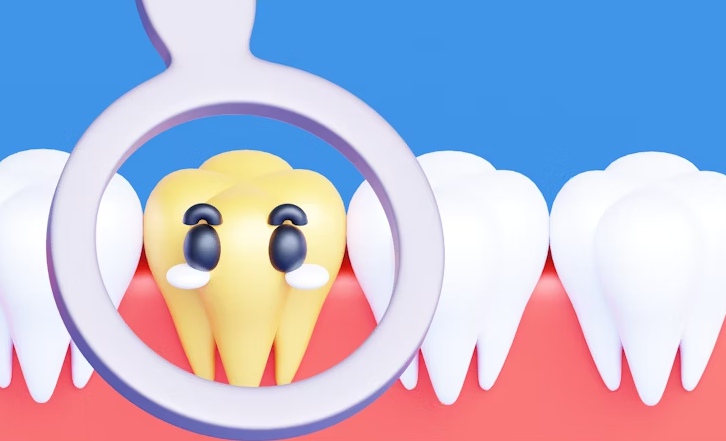
@ShahidNShah


A dental visit with a child is an excited start towards a healthy life. It concerns parents as to what will go on during the visit and how their child will react. The bright side is that the process of creating positive, stress-free early experiences is something specifically pursued by pediatric dentists.
This information will help eliminate parental anxiety during that initial visit and establish the development of oral health throughout the lifespan. Pediatric dentistry is not simply an examination of a tooth, but an action that gives confidence, teaches the family about maintaining good health, and prevents dental issues before they arise[1]. This includes guidance on fluoride use and recognizing early signs of decay in infant teeth.
This is a guide for parents on all those steps they should be familiar with prior to taking their child to the dentist. It includes information about when and how to prepare, and what to expect when their child sits on the dental chair.
When a child first visits the pediatric dentist, the routine is generally painless, pleasant and an effort to combat any feeling of apprehension a child might have. The visit will include the dentist exploring the teeth, gums, jaw and bite of the child to identify any issues. The test is not painful or invasive. The dentist might also count teeth of the child, examine his or her habits like sucking thumb and even administer a fluoride varnish if necessary, usually in an environment where the parent is resting on his lap.
The dentist may decide to gently clean the teeth of the child in order to remove plaque. They will also discuss brushing, healthy eating, and the planning of future dental demands with the parents as more teeth are coming in. The parents also will have questions regarding the oral health and development of the child, which will also be answered.
According to the recommendations of the American Academy of Pediatric Dentistry children should visit the dentist not earlier than their first birthday or 6 months after the first tooth appears[2]. Early starting may come as a surprise to some parents, but it has several reasons behind it. Visiting early enables the dentist to inspect the healthy development of the teeth and detect any possible complications, such as baby bottle tooth decay, which can occur from prolonged exposure to sugary liquids in bottles.
A child’s first dental appointment also provides an opportunity for parents to be educated on the proper methods of maintaining oral hygiene in both infants and toddlers. Dentists may discuss bottle feeding, pacifiers, teething, and fluoride requirements. Early visits to the dentist, when children may not be afraid of the surgery, will allow them to become accustomed to the regular visits. This minimizes anxiety and concern regarding subsequent visits. The problems are also identified early enough thus avoiding complications in the future.
Pediatric dentists focus on providing a friendly experience to children patients. They are trained in psychology of children and their behavior. Their mode of operation differs significantly from that of adult dentistry in several ways.
Though both general and pediatric dentists can take care of patients of any age, there are special benefits of pediatric dentists in children. Understanding such differences enables parents to make informed decisions about their child’s dental care.
|
Early good oral hygiene practices are maintained throughout life.
When fully prepared, taking young children to a dentist office can be a fun adventure. Parents can have an important influence in creating an attitude toward dental care among children.
The following strategies are effective to prepare your kid:
Regardless of what happened during the visit, congratulate your child on being brave at the end.
There are some important things to consider when selecting a dental practice. The kid-friendly clinic must feel comfortable to both a child and parents.
Seek out well-known dentists that specialize in pediatrics such as LiT Dental in McKinney, TX. They offers preventive services (cleanings, exams, fluoride, and X-rays) so as to treat children. Find out the best dentist, compare practices locally evaluating services, board certification and licensure against the state dental board (e.g., Texas State Board of Dental Examiners) ensuring flexible scheduling and a child-friendly atmosphere.
Parents should be given the confidence to face fear of taking their child to the dentist. They should be aware of what to expect and how child-friendly dentists can assist. Early dental visits prevent major issues, instill trust with dentists, and learn proper dental care. Pediatric dentists are the most qualified to treat young kids as they have specialized training and are used to treating children. Early and routine visits to a trained pediatric dentist will establish healthy teeth and gum that last lifetime.
[1]: https://litdentalclinic.com/pediatric-dentistry/childrens-dental-services/
[2]: https://www.aapd.org/globalassets/media/policy-center/year1visit.pdf
[3]: https://litdentalclinic.com/pediatric-dentistry/fluoride-treatment/

In personal injury lawsuits, witness statements play an important role in building a strong case. However, when witness statements are inconsistent, they can create significant challenges for …
Posted Oct 8, 2025 Pain Management Law
Connecting innovation decision makers to authoritative information, institutions, people and insights.
Medigy accurately delivers healthcare and technology information, news and insight from around the world.
Medigy surfaces the world's best crowdsourced health tech offerings with social interactions and peer reviews.
© 2026 Netspective Foundation, Inc. All Rights Reserved.
Built on Feb 17, 2026 at 4:40am